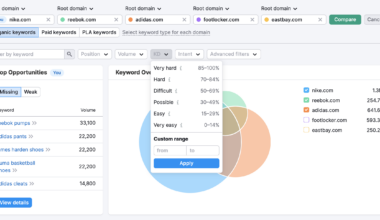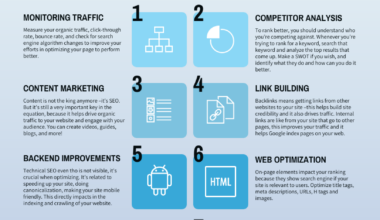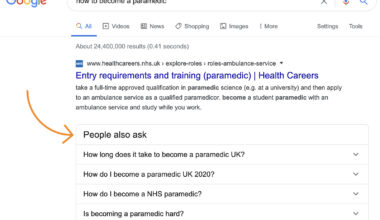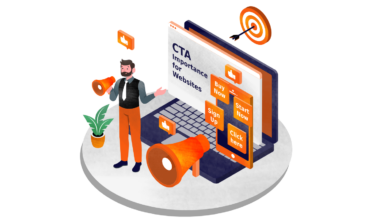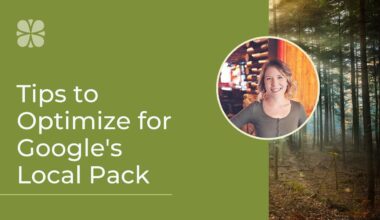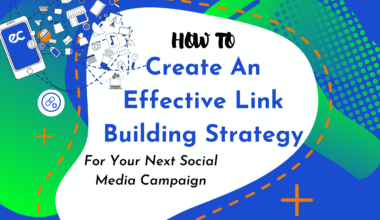Introduction to SEO and Its Importance
As a website owner, you want to ensure that your website ranks high on search engines, and that is where Search Engine Optimization (SEO) comes into play. SEO is the process of optimizing your website to rank higher on search engines like Google, Bing, and Yahoo.
Having a website that is not optimized for search engines is like having a shop without a signpost. Nobody will be able to find you, and you will miss out on potential customers. SEO is crucial for your website’s ranking because it helps search engines understand what your website is about and if it is relevant to a user’s search query.
Search engines use complex algorithms to determine which websites to rank high on their search engine results pages (SERPs). These algorithms consider many factors, including keywords, content quality, website structure, user experience, backlinks, and social signals.
If you want your website to rank high on search engines, you need to understand how SEO works and implement the best practices. SEO is not a one-time task, but a continuous process that requires consistent effort and monitoring.
In the next sections of this article, we will discuss the different aspects of SEO that you need to focus on to improve your website’s ranking. These include keyword research and analysis, on-page optimization techniques, off-page optimization, and link building. By mastering these techniques, you can improve your website’s visibility, attract more organic traffic, and grow your business.
Understanding Keyword Research and Analysis
Keyword research and analysis are essential components of SEO. It is the process of finding the right keywords that users enter into search engines when looking for information related to your business or website. By including these keywords in your website’s content, you can improve your website’s visibility on search engine results pages.
To conduct keyword research, you need to use keyword research tools like Google Keyword Planner, SEMrush, or Ahrefs. These tools help you find relevant keywords related to your business or website and provide information such as search volume, competition, and cost-per-click.
Once you have a list of potential keywords, you need to analyze them to determine which ones are the most relevant and have the highest potential for ranking. You should consider factors such as search volume, competition, and relevance to your website’s content and business.
It is also important to group your keywords according to their relevance and search intent. For example, if you have a website about pet care, you might group your keywords into categories such as “dog food,” “cat grooming,” and “bird cages.”
After analyzing your keywords, you can start optimizing your website’s content by including them in your titles, headings, meta descriptions, and body copy. However, it is important to use keywords naturally and avoid “keyword stuffing,” which can result in penalties from search engines.
In addition to using keywords in your website’s content, you can also use them in your website’s URL, image alt tags, and internal and external links. This helps search engines understand the context of your website and improves your website’s visibility and ranking.
In conclusion, keyword research and analysis are crucial for your website’s ranking. By finding the right keywords and including them in your website’s content, you can improve your website’s visibility on search engine results pages, attract more organic traffic, and grow your business. Remember to use keyword research tools, analyze your keywords, group them according to relevance and search intent, and use them naturally in your website’s content and other elements.
On-page Optimization Techniques
On-page optimization refers to the techniques used to optimize individual web pages to rank higher on search engines and earn more relevant traffic. On-page optimization techniques play a crucial role in improving your website’s ranking, as search engines assess each web page individually rather than the website as a whole. Here are some on-page optimization techniques that you can implement to improve your website’s ranking:
1. Title Tags and Meta Descriptions
Title tags and meta descriptions are HTML elements that appear in search engine results pages. Title tags provide a brief and concise description of the content of your web page, while meta descriptions provide a longer and more detailed description of the page’s content. Both elements should include relevant keywords and accurately describe the content of the web page.
2. Header Tags
Header tags (H1, H2, H3, etc.) are HTML elements that indicate the importance of the headings on your web page. Header tags help search engines understand the structure and hierarchy of your web page’s content. The H1 tag should include the primary keyword, while the other header tags should be used to break up the content into smaller, more manageable sections.
3. Content Optimization
Content optimization involves creating high-quality and relevant content that includes relevant keywords and provides value to your target audience. Your content should be well-structured, easy to read, and provide a positive user experience. It should also include internal and external links to relevant content.
4. URL Optimization
URL optimization involves creating search engine-friendly URLs that include relevant keywords and accurately describe the content of the web page. Your URLs should be short, concise, and easy to read.
5. Image Optimization
Image optimization includes using relevant and descriptive filenames, alt tags, and captions for your images. This helps search engines understand the context of your images and improves your web page’s ranking.
6. Page Speed Optimization
Page speed optimization involves optimizing your web page’s loading speed to provide a positive user experience. This includes minimizing file sizes, enabling browser caching, and using content delivery networks (CDNs).
In conclusion, on-page optimization techniques are essential for improving your website’s ranking and attracting relevant traffic. By optimizing your web page’s title tags, meta descriptions, header tags, content
Off-page Optimization and Link Building
Off-page optimization refers to the activities that you do outside of your website to improve its ranking on search engines. One of the most important aspects of off-page optimization is link building. Link building involves getting other websites to link to your website.
Search engines consider links to your website as a vote of confidence or trust. The more high-quality links you have from other authoritative websites, the higher your website will rank on search engine results pages. However, it is important to note that not all links are created equal. Search engines value links from authoritative and relevant websites more than links from low-quality websites.
Here are some effective link building strategies that you can use to improve your website’s ranking:
1. Guest Blogging
Guest blogging involves writing high-quality blog posts for other websites in your niche or industry. In exchange for your post, you can include a link back to your website in your author bio or within the content of the post. Guest blogging allows you to reach a new audience, establish yourself as an authority in your industry, and earn high-quality backlinks to your website.
2. Broken Link Building
Broken link building involves finding broken links on other websites and offering to replace them with a link to your website. To find broken links, you can use a tool like Check My Links or Broken Link Checker. Broken link building allows you to help other website owners fix their broken links while earning high-quality backlinks to your website.
3. Social Media Promotion
Social media promotion involves sharing your website’s content on social media platforms like Facebook, Twitter, and LinkedIn. By sharing your content on social media, you can reach a wider audience and encourage others to share your content as well. This can lead to more backlinks to your website and improved ranking on search engines.
4. Influencer Outreach
Influencer outreach involves reaching out to influencers in your niche or industry and asking them to share your content with their followers. Influencers have a large following and can help you reach a wider audience and earn high-quality backlinks to your website.
5. Directory Listings
Directory listings involve submitting your website to online directories like Yelp, Yellow Pages, and Google My Business. By listing your website in online directories, you can improve your website’s visibility
Final Thought: Continuous Monitoring and Improvement
SEO is not a one-time task but a continuous process that requires consistent effort and monitoring. Search engine algorithms are constantly evolving, and your website’s ranking can change at any time. Therefore, it is important to monitor your website’s performance regularly and make necessary improvements to maintain or improve your ranking.
Continuous monitoring involves tracking your website’s performance metrics such as traffic, page views, bounce rate, and conversion rate. You can use tools like Google Analytics or SEMrush to monitor your website’s performance and identify areas for improvement.
Once you have identified areas for improvement, you can implement the necessary changes to optimize your website further. This might include updating your keywords, improving your website’s structure and navigation, or adding fresh and relevant content.
It is also important to stay up to date with the latest SEO trends and best practices. SEO is a constantly evolving field, and what worked yesterday may not work today. By staying up to date with the latest trends and best practices, you can ensure that your website remains optimized and competitive.
In conclusion, SEO is crucial for your website’s ranking and requires continuous effort and monitoring. By understanding the importance of keyword research and analysis, on-page optimization techniques, off-page optimization, and link building, you can improve your website’s visibility and attract more organic traffic. Remember to continuously monitor your website’s performance and make necessary improvements to maintain or improve your ranking.












